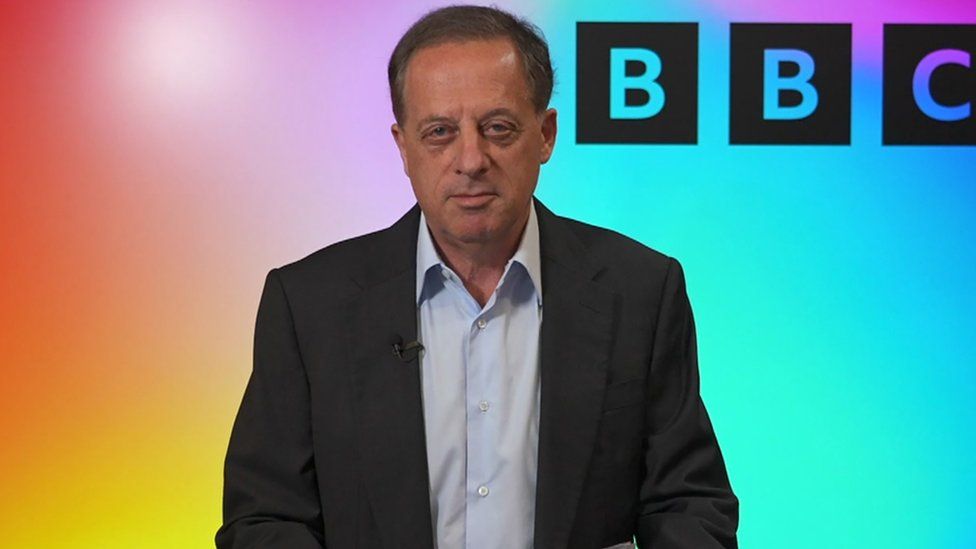ARTICLE AD BOX

Ex-BBC chairman Richard Sharp says the licence fee is "regressive"
Wealthier households might have to pay more for the BBC, former chairman Richard Sharp has suggested.
The licence fee system is "regressive", he said, and could instead be replaced by a tax on broadband bills or a household levy based on property value.
Mr Sharp resigned as chairman of the BBC in April.
Speaking to the Daily Telegraph, he also warned that whoever who took on the job would have a "target" on their back.
Mr Sharp stepped down after breaking rules over dealings with the then Prime Minister Boris Johnson ahead of his appointment. Dame Elan Closs Stephens has since been appointed as acting chairwoman of the BBC.
The government froze the BBC licence fee at £159 for two years in January 2022.
Speaking to the Chopper's Politics podcast, Mr Sharp said he would be in favour of a "form of mandatory payment" like the licence fee, but highlighted some issues he had with it.
"One is that it's regressive," he said, meaning households on lower incomes "pay the same price" as wealthier households. This "may need to be addressed," he added.
Asked if that meant there could be different scales of the fee, linked to income, Mr Sharp pointed to different models from around the world. "There's a broadband tax, there's a household tax and there's the licence fee," he said.
Describing the licence fee as "imperfect", he said the focus should be on whether there is a "better system" and what disruption would be caused by changing the current one. "This is a debate for Parliament," he told the Telegraph.
The ex-investment banker also expressed concern that the enforcement of the licence fee meant women were disproportionately likely to be prosecuted for non-payment.
Discussing his successor, Mr Sharp said they could be a Conservative party donor, adding: "I don't think the fact that I had donated to the party, and I think the last party donation was in 2010, should have disqualified me."
During recruitment, the BBC needs to "assure themselves that the chairperson will take as a primary objective the strength of the BBC as an independent organisation and should behave in an impartial manner", he said.
However, he told the Telegraph the position is a "target" and whoever holds it is "vulnerable".
"When there was a Labour-supporting chair, there's a target. It's a sufficiently important institution that who ever is the chair is vulnerable," he said.
Mr Sharp advised anyone trying to become his successor "to make sure you and your family know what you're getting into".
This is because there has been an increase in what he calls "anger-tainment" news coverage which has led to "ad hominem attacks - fair and unfair" to drive traffic to news websites.
Mr Sharp resigned from the BBC on 28 April after a report found he had failed to disclose two "potential perceived" conflicts of interest ahead of his appointment.
The first was telling Mr Johnson - who was then prime minister - that he wished to apply for the role before submitting his application.
The second related to his involvement in the facilitation of a loan guarantee for the former prime minister.
The report noted that Mr Sharp does not accept the first conclusion, but he has apologised for the second, although he described it as "entirely inadvertent".
The BBC has been approached for a comment.

 1 year ago
44
1 year ago
44








 English (US) ·
English (US) ·